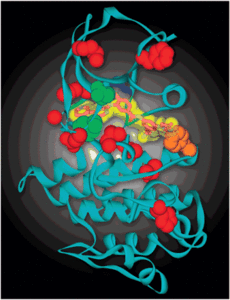On 2 April 2013, the Supreme Court of India rejected drugmaker Novartis’ seven-year battle to patent its cancer drug Glivec (imatinib mesylate), ruling that the drug was not a new invention.
The decision is being marked as a landmark ruling that healthcare activists say ensures poor patients around the world will get continued access to cheap versions of life-saving medicines.
Switzerland-based Novartis challenged India’s patent laws back in 2006 when it failed to receive patent protection for Glivec. According to Indian patent law, a patent cannot be granted for a modification of a known chemical composition and since imatinib mesylate was the salt form of imatinib, the original invention behind the cancer drug, it was not granted a patent [1].
The Supreme Court decision opens up the market to lower-cost generic versions of Glivec to continue to be sold and is expected to have far-reaching consequences for prices and access to a wide array of important medicines. Indian generics companies supply most of the lower cost medicine used in the developing world.
Novartis, while it states that it ‘strongly supports the contribution of generics to improving public health once drug patents expire’ argues that this decision ‘discourages innovative drug discovery essential to advancing medical science for patients’. The company added that ‘this ruling is a setback for patients that will hinder medical progress for diseases without effective treatment options.’
International aid agency Médecins Sans Frontières (MSF), however, has hailed the news as ‘a major victory for patients’ access to affordable medicines in developing countries’. Dr Unni Karunakara, MSF International President, said that the decision ‘is a huge relief for the millions of patients and doctors in developing countries who depend on affordable medicines from India, and for treatment providers like MSF’.
Dr Karunakara added that ‘the Supreme Court’s decision now makes patents on the medicines that we desperately need less likely. This marks the strongest possible signal to Novartis and other multinational pharmaceutical companies that they should stop seeking to attack the Indian patent law.’
The Economic Times of India, however, argues that ‘limiting intellectual property protection and creating barriers to market access will only inhibit India’s own pharmaceutical industry from developing products for India, while doing little to improve accessibility of medicines for its population’. They also point out that ‘two-thirds of India’s population have little or no access to modern health care, even at the lower prices of generics’.
Editor’s comment
Is the decision by India’s Supreme Court a victory for patients? Or will it stop innovator companies investing in new medicines?
Please feel free to share your thoughts via email or in the comments section below. What are your views on Indian patent rules? Do you think that they stifle innovation or are they a means to provide access to medicines for all?
Related articles
India’s patent office at odds with Big Pharma
MSF launches online ‘Patent Opposition Database’
India’s patent laws coming under repeated challenges
Reference
1. GaBI Online - Generics and Biosimilars Initiative. Novartis versus the Indian patent system [www.gabionline.net]. Mol, Belgium: Pro Pharma Communications International; [cited 2013 Apr 12]. Available from: http://www.gabionline.net/Biosimilars/News/Novartis-versus-the-Indian-patent-system
Permission granted to reproduce for personal and educational use only. All other reproduction, copy or reprinting of all or part of any ‘Content’ found on this website is strictly prohibited without the prior consent of the publisher. Contact the publisher to obtain permission before redistributing.
Photo credit: aacrjournals.org
Source: MSF, Novartis,The Economic Times India








 0
0











Post your comment